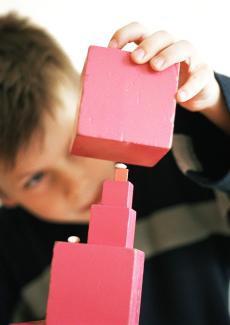
Reflections on Play
A Resource Guide
March 7, 2014

NIEER is concluding a two-week blog forum on the importance of play in early childhood education. As we stated in our kick-off post.
“The early childhood field has a history of conflict over means and goals that periodically erupts into public debates about the role of play versus academics and construction versus instruction. Concerns about whether preschool and kindergarten have become too stressful and regimented are met head on with concerns that they are academically weak and fail to cognitively challenge children. These conflicts have been intensified by increased demands for assessment and Common Core State Standards driving curriculum in the early grades.”
In the last two weeks, we’ve considered play from a number of different perspectives from experts in the field, looking both at what the research says about play’s importance in the classroom, and at how play-based learning can be used on the ground. These posts focus on key issues in the field and serve as valuable resources as parents, teachers, and policymakers strive to ensure play has its place in pre-K:
- Douglas H. Clements & Julie Sarama, of the University of Denver, writing on Play, Mathematics, and False Dichotomies;
- Larry Schweinhart, President Emeritus, HighScope Educational Research Foundation on Taking the Long View on Play in Early Education;
- CEELO staff member Melissa Dahlin on her own experiences with Engaging Children, Building Skills;
- Kathy Hirsh-Pasek of Temple University and Roberta Michnick Golinkoff, University of Delaware, discuss Playful learning: Where a rich curriculum meets a playful pedagogy;
- Kimberly Brenneman, NIEER Assistant Research Professor, ponders Teacher-led? Child-guided? Find the Balance in Preschool Classrooms
What does play looking like in an early childhood setting? How can meaningful learning be fostered without forcing out room for creativity, imagination, and fun?
In addition to the posts we’ve featured, NIEER has compiled a list of resources–a recommended reading list–to help keep the conversation going:
- Preschool Matters article: Looking at Play the Healthy Way
- Presentation from Shannon Ayers and Ellen Frede: Seeing the Learning in Play
- Book Review from Shannon Riley-Ayers: Giving Play Its Due: Review of A Mandate for Playful Learning in Preschool: Presenting the Evidence by Kathy Hirsh-Pasek, Roberta Michnick Golinkoff, Laura E. Berk, and Dorothy G. Singer
- NIEER Policy Brief from Ellen Frede and Debra Ackerman: Preschool Curriculum Decision-Making: Dimensions to Consider
- Scientific American article: The Serious Need for Play
- National Association for the Education of Young Children: Play and Children’s Learning Homepage
- Parent guide from Montana State University: The Importance of Play in Early Childhood Development
- Parent and Teacher Resource from EarlyChildhoodNEWS: Back-to-Basics: Play in Early Childhood
- From the Centre of Excellence for Early Childhood Development & Strategic Knowledge Cluster on Early Child Development: According to the Experts
- From the American Educational Research Journal: Academic Content, Student Learning, and the Persistence of Preschool Effects
- From Psychological Bulletin: The Impact of Pretend Play on Children’s Development: A Review of the Evidence
Are there others you think provide a great perspective on the importance of play? Please share links and recommendations in the comments!
Thanks for joining us in this important discussion.
About NIEER
The National Institute for Early Education Research (NIEER) at the Graduate School of Education, Rutgers University, New Brunswick, NJ, conducts and disseminates independent research and analysis to inform early childhood education policy.
